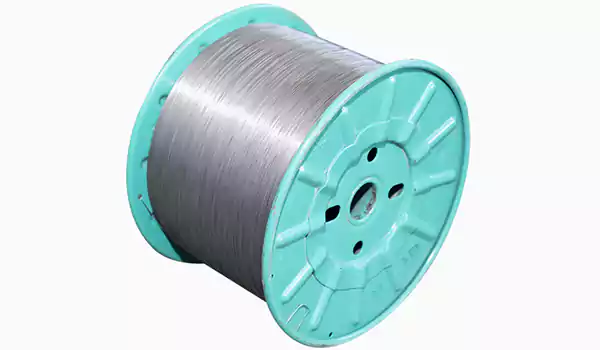
Deciding on the appropriate tubular component for an assignment depends on grasping its technical details and possible uses. Routine specs refer to metal grade, cross-section, span, and tolerance ranges. Factors such as pressure rating, temperature performance, and corrosion resistance are critical when selecting a pipe for industrial, commercial, or residential use. Metal pipes serve uses across construction, manufacturing, infrastructure, water supply, gas distribution, drainage systems, structural support and specialty sectors
- Identifying the project's detailed specifications guides the selection of an appropriate pipe
- Review authoritative industry guidelines to understand exact specifications for metal pipes
- Determine material selection through pressure ratings, temperature tolerance and corrosion concerns
Steel Tubing: Power, Longevity, and Flexibility
Hollow steel tubing enjoys a reputation for high strength and is preferred across diverse industrial, structural and commercial contexts. Exceptional longevity stems from production methods like seamless drawing or welding. Produced by drawing steel rods, billets or slabs into seamless or welded tubes, they resist corrosion, wear and damage and deliver long service life even in harsh environments. Versatile tube steel can be fabricated into broad ranges of profiles—from standard tubes to complex geometries—for bespoke applications. Across large-scale infrastructure, building frameworks and intricate mechanical systems, tube steel's combination of robust strength, long endurance and design flexibility secures its essential role in contemporary construction and manufacturingExpanded Metal Panels: Boosted Security and Safety
Expanded metal mesh is commonly specified for projects that seek a balance of solid security and enhanced safety. The lattice-like formation gives visibility yet forms an effective physical barrier to intrusion and hazards. Selectable opening geometries and metal thicknesses provide adaptability to exact specifications
- Robust expanded metal endures blunt force, corrosive vandalism and adverse weathering
- Furthermore, its simple installation and low maintenance increase adoption across sectors
- Applied to secure infrastructure and ensure worker safety in industrial spaces, expanded metal offers an integrated protective solution
Industrial Deployment of Metal Mesh
Steel mesh sees broad industrial application due to high strength, long life and adaptable function. It supplies a robust lattice used in filtration, sieving, reinforcement and protective installations. In civil construction, steel mesh is often embedded in concrete to strengthen tensile resistance and prevent cracking. Furthermore, steel mesh contributes to structural reinforcement in bridges, tunnels and civil engineering for enhanced load capacity. Production lines use steel mesh in filters and screens to separate materials of distinct sizes, enabling sieving, sorting and purification. Additionally, steel mesh is used in safety and security contexts including barriers, fencing and enclosures to restrict access and protect staff. Its strong tensile attributes allow it to absorb impacts and forces, granting consistent protective performance in challenging environments
Uses of Metal Pipes in Structures
Inherent robustness makes metal pipes indispensable for diverse structural applications. Their adaptability supports building durable frameworks that carry loads for multiple industries. From high-rise structures to bridges and buried pipelines, metal pipes act as supporting backbones that resist environmental pressures. Corrosion defence plus convenient fabrication cement their position in modern building practices
Deciding on Tube Steel for Your Project
For fabrication and construction efforts, choosing the correct tube steel is a vital step. The strength, endurance and lighter mass of tube steel make it appropriate for diverse applications. Even so, large arrays of grades and specifications complicate the tube steel selection process
- To achieve project goals, review intended use, load criteria and ambient conditions
- Aspects like wall thickness, diameter and material grade directly affect tube steel performance
For heavy structural projects, high-yield or heavy-gauge tube steel with thicker walls may be appropriate, while lightweight uses like bicycle frames could use thinner-walled, lighter steel
Engage expert engineers or proven suppliers to help pick the right tube steel for the specific project
Upsides of Expanded Metal in Building Projects
Expanded metal delivers a variety of pragmatic and productivity-enhancing benefits for construction. Because metal steel mesh it is lightweight, installation is easier and labor costs can be reduced. Moreover, the open structure boosts ventilation and drainage to reduce moisture-related issues. Durable material properties qualify it for uses where resilience is necessaryConnections for Metal Pipes Explained
Connection assemblies in piping are core components allowing secure movement of fluids and gases. Choosing the right connection depends on pipe diameter, material, pressure rating and application. Commonly used pipe joints are threaded, flanged and welded types, offering assorted strength and sealing capabilities. Threaded fittings rely on interlocking male/female threads tightened together, flanged fittings employ bolt-secured flat faces, and welded fittings join sections permanently via fusion. Understanding characteristics of each joint type is crucial for achieving leak-free, operational pipingSteel Mesh as a Multipurpose DIY Material
Steel mesh is robust, long-lasting and flexible, fitting many do-it-yourself projects. The mesh's open grid supports making fences, screens and ornamental pieces. Additionally, it is lightweight and easy to handle, popular among both novice and experienced DIYers
- Consider using steel mesh for your next creative or practical DIY project
Steel Pipes: Sanitation to Structural Uses
Metallic pipes are now indispensable in modern infrastructure and construction because of their strength, longevity and flexibility. Initially focused on water and sanitation, metal pipes have progressed into structural support and reinforcement roles. From the foundational supports of buildings to the arteries of water and gas distribution, metal pipes offer critical functions in modern systems. Robust construction allows them to manage high pressures and loads and corrosion resistance delivers dependable long-term performance. Furthermore, ease of fabrication lets pipes be shaped into varied configurations for broad use cases
Expanded Metal: A Blend of Design and Function
Expanded metal enables varied design expressions alongside strong functionality. Open construction suits both creative architectural treatments and functional industrial safety installations. Load-bearing capacity plus good looks make expanded metal desirable for structural and aesthetic uses
- In addition, the open weave promotes superior air circulation and helps with temperature control where needed
- Expanded metal finds application in construction, production, transport, automotive and decorative design industries